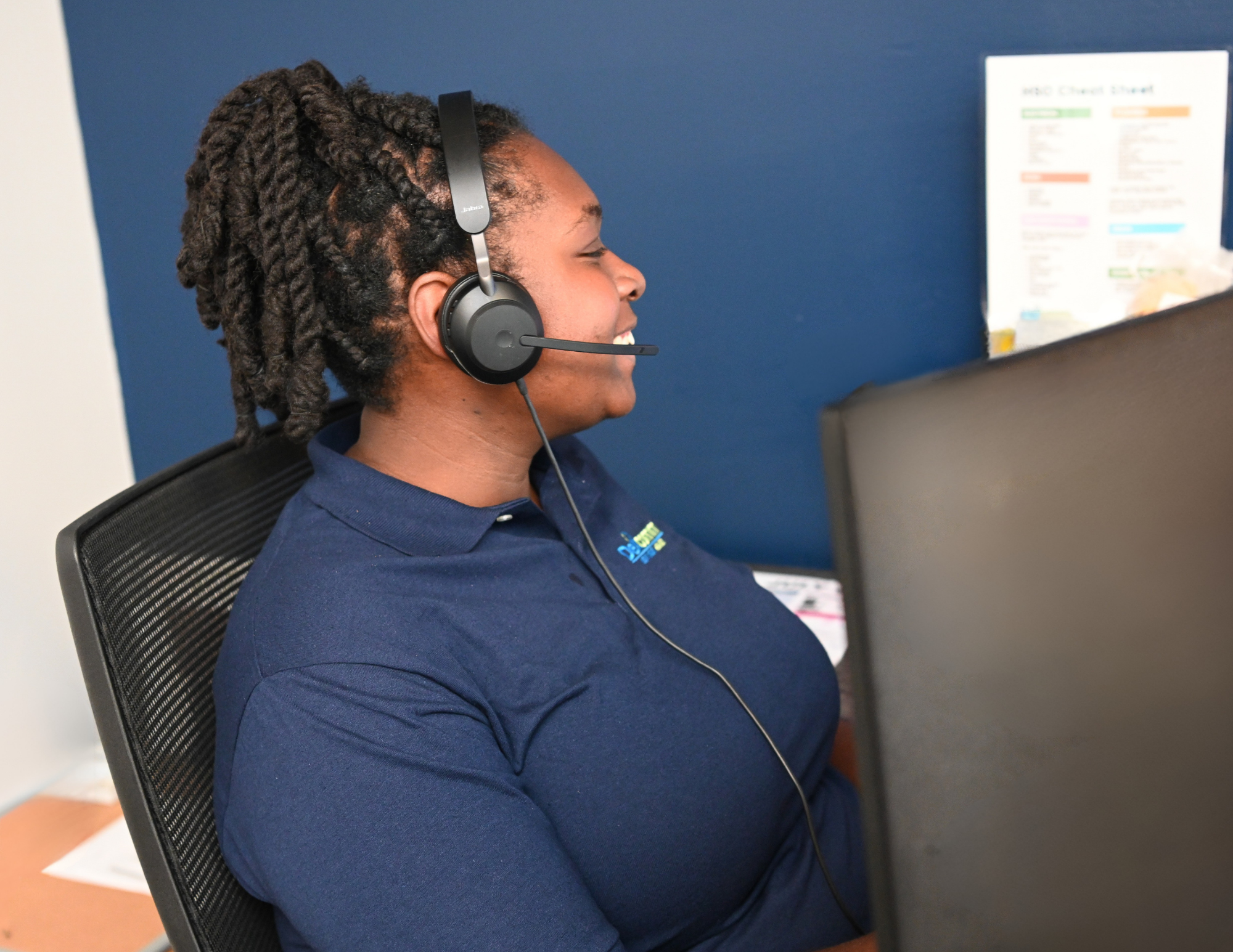Great telephone etiquette can bring your business to new heights by improving customer trust, strengthening your brand’s reputation, and increasing customer retention, but bad telephone etiquette? Bad telephone etiquette, on the other hand, can lead to missed opportunities, bad reviews, and a damaged brand image. More often than not, businesses don’t fall neatly into the categories of excellent or poor telephone etiquette—they usually land somewhere in between. Nevertheless, if your telephone etiquette involves any of the following practices, there’s certainly room for improvement!

Mistakes in Call Handling at the Start of the Call
First impressions are important! At the start of the call, there are a few things you should avoid so that you and the caller start off on the right foot.
Missing the Call
When you miss a call– because your business was closed, you were busy, you didn’t hear it, or whatever the case may be– all the caller gathers is, “I cannot contact this business right now.” They don’t know if you’ll call them right back or if you’ll check your voicemail, and they very well might move on to the next service to see who can answer their question or if they can book a service elsewhere. Ultimately, whether you mean to or not, it is bad telephone etiquette to miss phone calls– especially if you do so regularly.
Using an Inconsistent or Unprofessional Greeting
The way you answer the phone is a small detail that makes a big difference. Using consistent verbiage when answering the phone makes for a strengthened brand reputation. When you answer the phone, it’s crucial to thank the customer for calling your business and to ask how you can assist them. For example, “Thank you for calling Dexcomm, how can I assist you today?” Be sure to put whatever spin on the verbiage that best matches your brand’s voice.
Improperly Handling Holds
It’s never fun to be on the receiving end of a hold, but there are plenty of ways you might be inadvertently making the experience of a hold worse for your callers. For one thing, if you’re putting a caller on hold without asking them first, that’s bad telephone etiquette. It’s also bad telephone etiquette to place a caller on hold and leave them on hold for an extended period of time. Be sure to ask if it’s okay to place them on a brief hold before doing so, and don’t be shy to offer to call them back if you’re too busy at the moment.

Phone Etiquette to Avoid Throughout the Call
The longest part of a call is the middle of the call. This is when the caller expresses their concerns, and you go on the search for answers for them.
Interrupting the Caller
Once you greet the caller, it’s likely they’ll say something that you’ve heard before. “I’d like to schedule an appointment,” “What are your hours of operation?” and so on and so forth. Nevertheless, it is crucial that you never interrupt a caller. Doing so can negatively affect customer trust, so it’s important to listen to everything they have to say before proceeding with an answer or your own thoughts.
Expressing Impatience or Indifference
Though you might not do so intentionally, expressing impatience or indifference to your callers is not only bad telephone etiquette– it’s disrespectful. Rushing the caller, using a rude or dismissive tone, and being distracted while on a call are all things that callers pick up on– and it’s not good for your brand’s reputation. Be as invested in the call as you would be if they were standing directly in front of you, and remain patient and invested as you guide the caller to a solution.
Eating or Drinking on a Call
While this may seem totally harmless, it’s not! Eating or drinking while on the phone with a caller doesn’t only serve as a distraction to you, it’s also unprofessional. Give the caller your full undivided attention while you’re on the phone.
Leaving Room for Dead Air
Dead air is the silence that occurs on both sides of a conversation, sometimes referred to as an “awkward silence.” If you need to take notes or type something out while your caller is speaking, let them know you’re taking a moment to record their words. If you need to find someone to help answer their question, let them know you’ll place them on a brief hold. Ultimately, it makes for a bad phone call when there’s too much dead air.
Providing Misinformation
If you can help it, never provide misinformation on a phone call. It’s one thing to make an honest mistake, but it’s another thing to realize you don’t know how to respond to a caller’s queries or concerns– and to deliver misinformation as a means to get through the call. Providing misinformation sets the foundation for more miscommunications down the line, harming your brand’s image.
Using Slang or Jargon
Using slang or jargon on the phone is a failure to practice effective communication. While incorporating slang is unprofessional, incorporating complex industry jargon is unclear. Instead, find a nice middle ground where you can express compassion and understanding to your callers while also conveying industry expertise.
Arguing with a Frustrated Caller
From time to time, you will inevitably have to speak to someone who is, well, less than thrilled to be on the phone with you. Despite, the last thing you should do is fuel a frustrated caller’s fire. Don’t argue with them. Don’t speak to them the way they speak to you. Don’t stoop to their level. Instead, meet their frustration with respect. Nine times out of ten, this will deescalate the situation.
Failing to Actively Listen
Active listening involves focusing on what your caller is saying– not what you’ll say to them next. Another way to practice active listening is by asking clarifying questions, narrowing the margin for miscommunications to occur. When you don’t actively listen on a call, you waste both the caller’s time and your own time.
Transferring a Call Without Explaining Why or Where
When you’re on a call and realize you’ll have to transfer your caller to another department, take the time to explain what department they’re being transferred to and why. Otherwise, you leave the caller feeling abandoned and confused. On top of that, don’t just say, “I’m transferring you to billing,” and then send the call off– wait until the customer confirms that they understand what’s going on.
Talking Too Fast or Too Quietly
Be sure to speak clearly when you’re talking on the phone. Talking too fast or too quietly will undoubtedly make it difficult for your caller to understand what you’re saying, so be conscious of the speed and volume at which you talk when on the phone.

Things to Avoid When Ending the Phone Call
The end of the phone call is when you ensure that all of your t’s are crossed and your i’s are dotted. It's important to end the phone call on a positive note so that you leave a positive impression on your caller.
Not Verifying Important Details
Throughout the call, you’ve certainly gathered some valuable information. It’s poor phone etiquette if, towards the end of the call, you fail to verify important details. From correct email address spellings to accurate appointment times, take a moment to review and verify that everything you recorded is correct while you’re still on the phone with the caller.
Hanging Up Without a Proper Closing
The same way you need an appropriate greeting, you need an appropriate closing. Once you verify all of the important details, thank the caller for calling the business.
Bonus Mistake: Failure to Follow Through on a Promised Action
We said this blog would be fifteen mistakes to avoid, but this last one was too important to not include. So here’s a sixteenth: do not promise an action to your caller and fail to follow through. This can damage your brand image by painting the picture that you’re unreliable.






